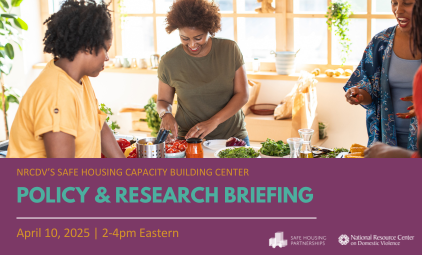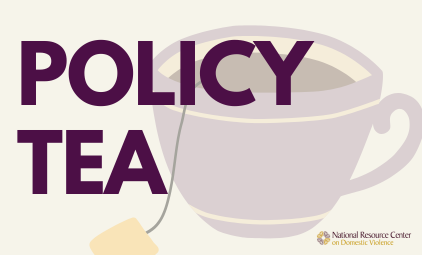Violence is preventable. We know it, we believe it. This idea inspires our work, and lately the buzz has been calling us to action. See how some of our partner organizations have been sparking the conversation.
The NSVRC’s Mapping Prevention video podcast series highlights unique state and community approaches to the prevention of sexual violence.
This 5-part series includes the following topics:
- Incorporating Healthy Sexuality with Alison Bellavance, Director of Education and Training at Planned Parenthood of Northeast and Mid-Penn in Pennsylvania
- Consent Work in LGBTQI Communities with Dustina Hasse-Lanier and Jessica Gilbertson of the Oregon Coalition Against Domestic and Sexual Violence
- Virginia’s YES Campaign with Jonathan Yglesias, Sexual Violence Prevention Coordinator for the Virginia Sexual & Domestic Violence Action Alliance
- Branding Prevention with Ashley Maier, former Prevention Program Coordinator with the Oregon Attorney General’s Sexual Assault Task Force
- Engaging Fathers with Craig Norberg-Bohm, Coordinator of the Men’s Initiative for Jane Doe, Inc.
 In the blogosphere, Jen Grove’s Perspectives of a Preventionista blog connects readers with innovative sexual violence prevention programs and resources. Read the NSVRC Prevention Outreach Coordinator’s musings on the challenges of moving forward a social change agenda to end sexual violence.
In the blogosphere, Jen Grove’s Perspectives of a Preventionista blog connects readers with innovative sexual violence prevention programs and resources. Read the NSVRC Prevention Outreach Coordinator’s musings on the challenges of moving forward a social change agenda to end sexual violence.
Prevention is hard! (from Mapping Prevention: YES we can!)

The Healthy Masculinity Action Project (HMAP) is a two-year action project to spread the message of healthy, non-violent masculinity across the country by developing new male leadership that role models strength without violence. This October 17–19 in Washington, DC the Healthy Masculinity Summit will will mark the beginning of the HMAP, bringing together some amazing faculty like Rosalind Wiseman, Joe Ehrmann, Rachel Lloyd, and Brian O’Connor to lead conversations about healthy masculinity, including how it relates to the prevention of domestic and sexual violence.
TA QUESTIONS OF THE MONTH
Read and comment on these recent requests received by the National Sexual Violence Resource Center and National Resource Center on Domestic Violence!
July 2012: How can I provide culturally competent services to women of color?
We need to remember that cultural competence is a very complex process. It is developed over time by engaging in a variety of activities and sources of information. We should always take into account the long history of oppression and people’s experiences of it in their lives. Finally, we should also be aware of and understand our own biased cultural lens.
June 2012: How can my center participate in a local pride festival?
During the month of June, many communities host Pride Events, Festivals and Parades as a space for activism around sexual and gender equality. Pride Festivals provide a unique space for local advocates, preventionists, and activists to reach out to members of historically underserved communities.
NEW APPLIED RESEARCH PAPERS
Parenting Interventions for Men Who Batter by Katreena Scott with contributions from Fernando Mederos (June 2012)
This Applied Research paper provides an overview of the research on the commonalities and controversies surrounding parenting interventions programs for men who batter with an emphasis on improving outcomes for women and child survivors of domestic violence.
Practical Considerations for Parenting Interventions for Men who Batter by Katreena Scott with contributions from Fernando Mederos (June 2012)
This Applied Research paper provides an overview of the practical considerations related to parenting interventions programs for men who batter. These include questions about program length and organization, referral routes, specific program content, and nature of collaboration between agencies.
NEW SPECIAL COLLECTIONS
Enhanced Services to Children and Youth Exposed to Domestic Violence – Promising Practices & Lessons Learned by the National Resource Center on Domestic Violence (May 2012)
This Special Collection provides lessons learned and related resources from nine HHS-funded 3-year demonstration projects to enhance services to children and youth who have been exposed to domestic violence. The core document for this collection is the NRCDV resource guide, Enhanced Services to Children and Youth Who Have Been Exposed to Domestic Violence: Promising Practices & Lessons Learned.
 Ending Violence Against Women Globally: International policies, programs, and approaches by Sheetal Rana for VAWnet, the National Online Resource Center on Violence Against Women (April 2012)
Ending Violence Against Women Globally: International policies, programs, and approaches by Sheetal Rana for VAWnet, the National Online Resource Center on Violence Against Women (April 2012)
This Special Collection brings together selected documents that focus on international policies, programs, and approaches to prevent and intervene in violence against women (VAW). The goal is to facilitate learning about different polices, programs, and approaches that have been developed, adopted, and adapted internationally to address VAW in diverse cultural and socio-economic situations.
The Washington State Coalition Against Domestic Violence has released a new online tool exploring design strategies for domestic violence emergency housing. Building Dignity aspires to show that through the design and collaboration process, domestic violence housing programs can shape the built environment to reflect and compliment their mission and values. Thoughtful design can help to empower parents, support children’s needs, and facilitate healing. It can help survivors rebuild a sense of dignity and allow staff to focus on providing survivor centered advocacy. The Building Dignity project can serve as a common reference for anyone involved in building or designing emergency housing for survivors and their families: advocates, fundraisers, architects, designers, and builders.
2012 NATIONAL SEXUAL ASSAULT CONFERENCE
 The Illinois Coalition Against Sexual Assault will host the 2012 National Sexual Assault Conference in Chicago this August. The three day event (August 22-24, 2012) will feature a variety of plenaries, workshops and keynote speakers Cassandra Thomas and Donna Brazile.
The Illinois Coalition Against Sexual Assault will host the 2012 National Sexual Assault Conference in Chicago this August. The three day event (August 22-24, 2012) will feature a variety of plenaries, workshops and keynote speakers Cassandra Thomas and Donna Brazile.
Follow the conference on Twitter!
WORLD ELDER ABUSE AWARENESS DAY 2012
World Elder Abuse Awareness Day is observed each year on June 15. This year, the National Resource Center on Domestic Violence connected with the National Clearinghouse on Abuse in Later Life and a few very courageous survivors that are willing to share their stories with us. Listen to the 30-minute BlogTalkRadio program, WEAAD 2012: Lessons Learned from Older Survivors.
RECENT ADDITIONS
View all recent additions to the VAWnet library. Highlights include…
Media Packet: Info & Stats for Journalists by the National Sexual Violence Resource Center (June 2012)
The Brain, Body, and Trauma by Kelly Wilt and Janine D’Anniballe for the National Sexual Violence Resource Center
Including Efforts to End Child Sexual Abuse within the Sexual Violence Prevention Movement by Joan Tabachnick and Cordelia Anderson for Prevent Connect in Partnership with the Ms. Foundation (May 3, 2012)
Elder Abuse Fact Sheets by Casa de Esperanza
Cultivating Fear: The vulnerability of immigrant farmworkers in the US to sexual violence and sexual harassment by Human Rights Watch (May 2012)
Guide to Knowledge and Skills for Children and Youth Advocates in Wisconsin Domestic Violence Programs by the Wisconsin Coalition Against Domestic Violence (2012)
How Understanding and Responding to Children’s Sexual Behaviors Can Prevent Child Sexual Abuse by Stop It Now! (April 2012)
Traumatic Brain Injury As a Result of Domestic Violence: Information, Screening and Model Practices by the Pennsylvania Coalition Against Domestic Violence (2011)
















